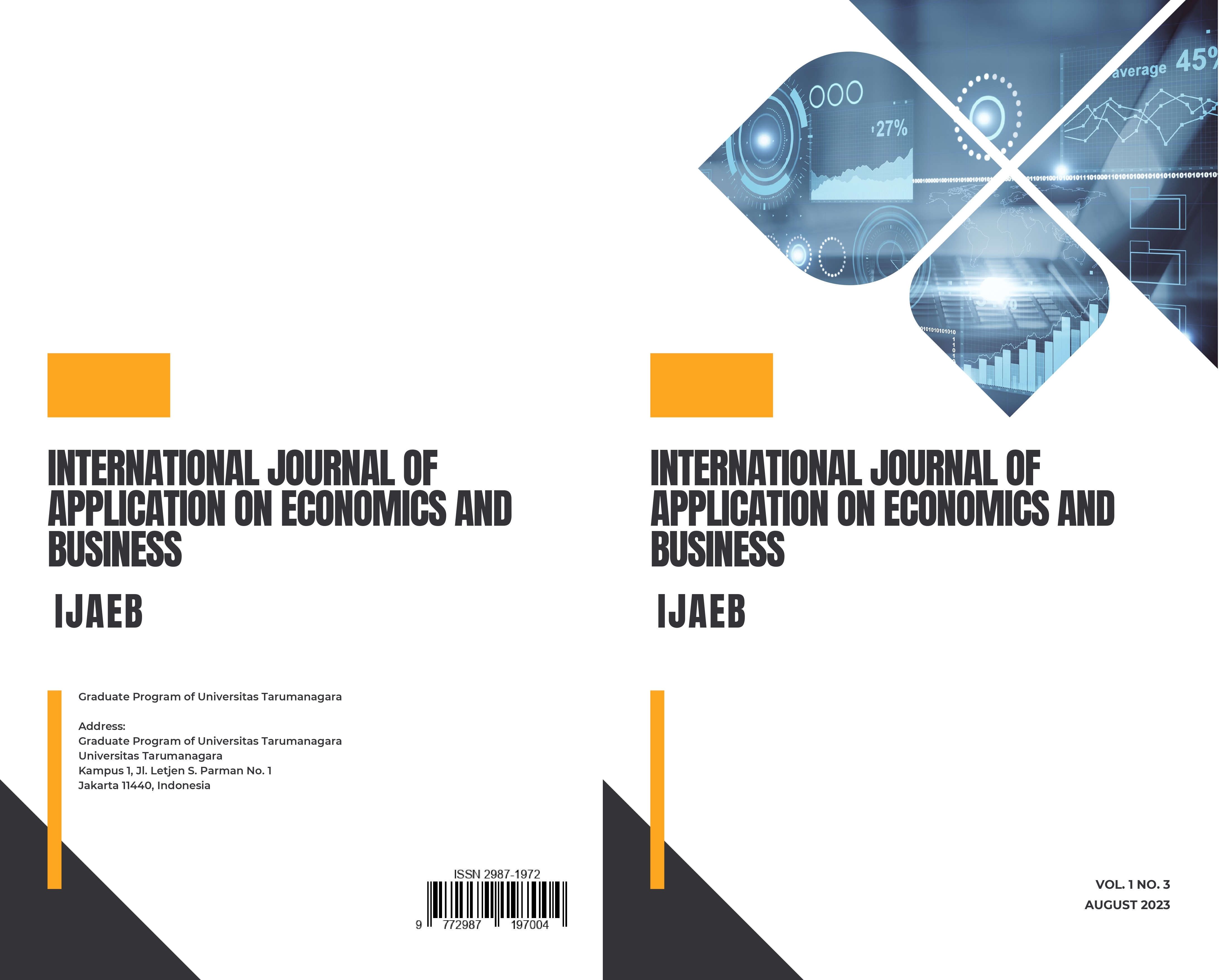THE IMPACT OF WORK STRESS ON CYBERLOAFING BEHAVIOUR IN TRAVEL COMPANY EMPLOYEE’S POST COVID-19 PANDEMIC WITH SELF-CONTROL AS MEDIATING ROLE
Main Article Content
Abstract
Work stress is a form of emotional fatigue experienced by employee. During Covid-19, many of travel employee’s experienced work stress due to problems caused by the pandemic. This problem can encourage an employee to perform counter-productive activities such as cyberloafing at work. In 2020-2021, travel company is the most affected industry during pandemic. Travel company employee’s experience stress due to the workload due to the pandemic. This work stress encourages them to carry out cyberloafing activity during work hours. This study is to analyze the impact of work stress on cyberloafing behaviour on travel company employee’s post Covid-19 pandemics through self-control as a mediating role. This study uses quantitative descriptive method by distributing questionnaires to 177 employees in a travel company on Jakarta. PLS-based Structure Equation Modeling (SEM) technique with 95% confidence level has been used for analysis and generating results. The result of this study is work stress and self-control have a positive and significant effect on cyberloafing behaviour. Self-control was found to have positive but not significant effect as a mediating role between work stress and cyberloafing behaviour.
Article Details
Section

This work is licensed under a Creative Commons Attribution-NonCommercial-ShareAlike 4.0 International License.
This journal provides immediate open access to its content on the principle that making research freely available to the public supports a greater global exchange of knowledge.
IJAEB by Graduate Program of Universitas Tarumanagara is licensed under a Creative Commons Attribution-NonCommercial-ShareAlike 4.0 International License.. Permissions beyond the scope of this license may be available at https://journal.untar.ac.id/index.php/ijaeb
References
Arli, D. and Leo,C., “Why do good people do bad things? The effect of ethical ideology, guilt proneness, and self-control on consumer ethics” Journal of Marketing and Logistics 29 (5), 1055-1078 (2017)
Blanchard, A.L. and Henle, C.A. & Guitton, M (Eds)., “Correlates of different forms of cyberloafing: The role of norms and external locus of control.” Computers in human behavior 24,1067-1084 (2020)
Derin, N. and Gökçe S.G., “Are cyberloafers also innovators? : A study on the relationship between cyberloafing and innovative work behavior.” Social and Behavioral Sciences (235), 694-700 (2016)
De Boer, B.J., Van Hooft, E.A.J. and Bakker, A.B., “Self-control at work: its relationship with contextual performance.” Journal of Managerial Psychology 30 (4), 406-42 (2015)
Ghozali, I. and Latan, H., Partial Least Squares: Konsep, Teknik dan Aplikasi SmartPLS 2.0 M3 untuk Penelitian Empiris. Badan Penerbit Universitas Diponegoro, Semarang, 2015
Jiang, H., Tsohou, A., Siponen, M. and Li, Y., “Examining the side effects of organizational Internet monitoring on employees”, Internet Research 30 (6), 1066-2243, (2020)
Jiang, H., Siponen, M. and Tsohou, A., “Personal use of technology at work: a literature review and a theoretical model for understanding how it affects employee job performance”, Journal of Information Systems, (2021)
Lim, P.K, Koay, Yeik, K.K., and Chong, W.Y., “The effects of abusive supervision, emotional exhaustion and organizational commitment on cyberloafing: a moderated mediation examination.” Internet Research 31 (2), 497-518, (2020)
https://travel.detik.com/travel-news/d-5816290/duh-kondektur-shinkansen-kerja-sambil-main-game-tak-ketahuan-selama-10-tahun, Retrieved 21 November 2021.
Robbins, S.P, and Judge, T.A. Essentials of Organizational Behavior, 14th Edition, Pearson, New Jersey, 2018
Yeik, K.K., Soh, P.C., and Chew, K., “Do employees' private demands lead to Cyberloafing? The mediating role of job stress.” Management Research Review 40 (9), (2017)
Varghese, L., & Barber, L. K., “A preliminary study exploring moderating effects of role stresors on the relationship between Big Five personality traits and workplace cyberloafing.” Journal of Psychosocial Research on Cyberspace 11 (4), 1-15, (2017)
Varshney, D.,”Relationship between social loafing and the self-concept: mediating role of perceived organisational politics.” Journal of Indian Business Research 11 (1), 60-74, (2019)
Weissenfeld, K., Abramova, O. and Krasnova, H., “Antecedents for cyberloafing – a literature review.” 14th International Conference on Wirtschafts informatik, 2019

